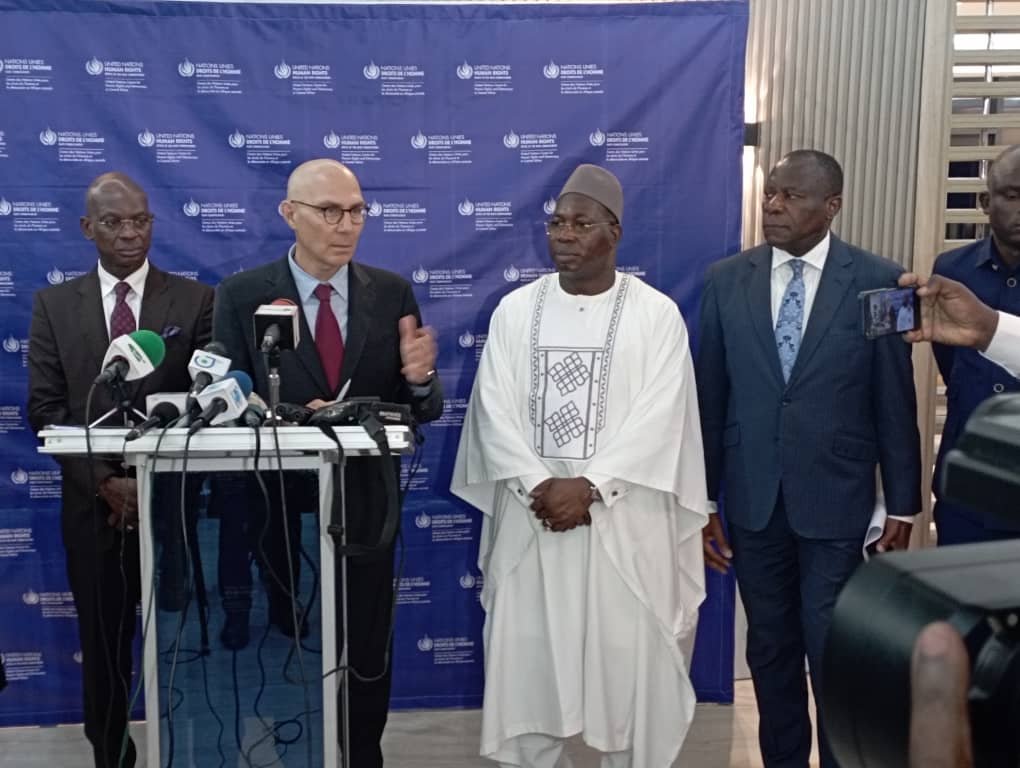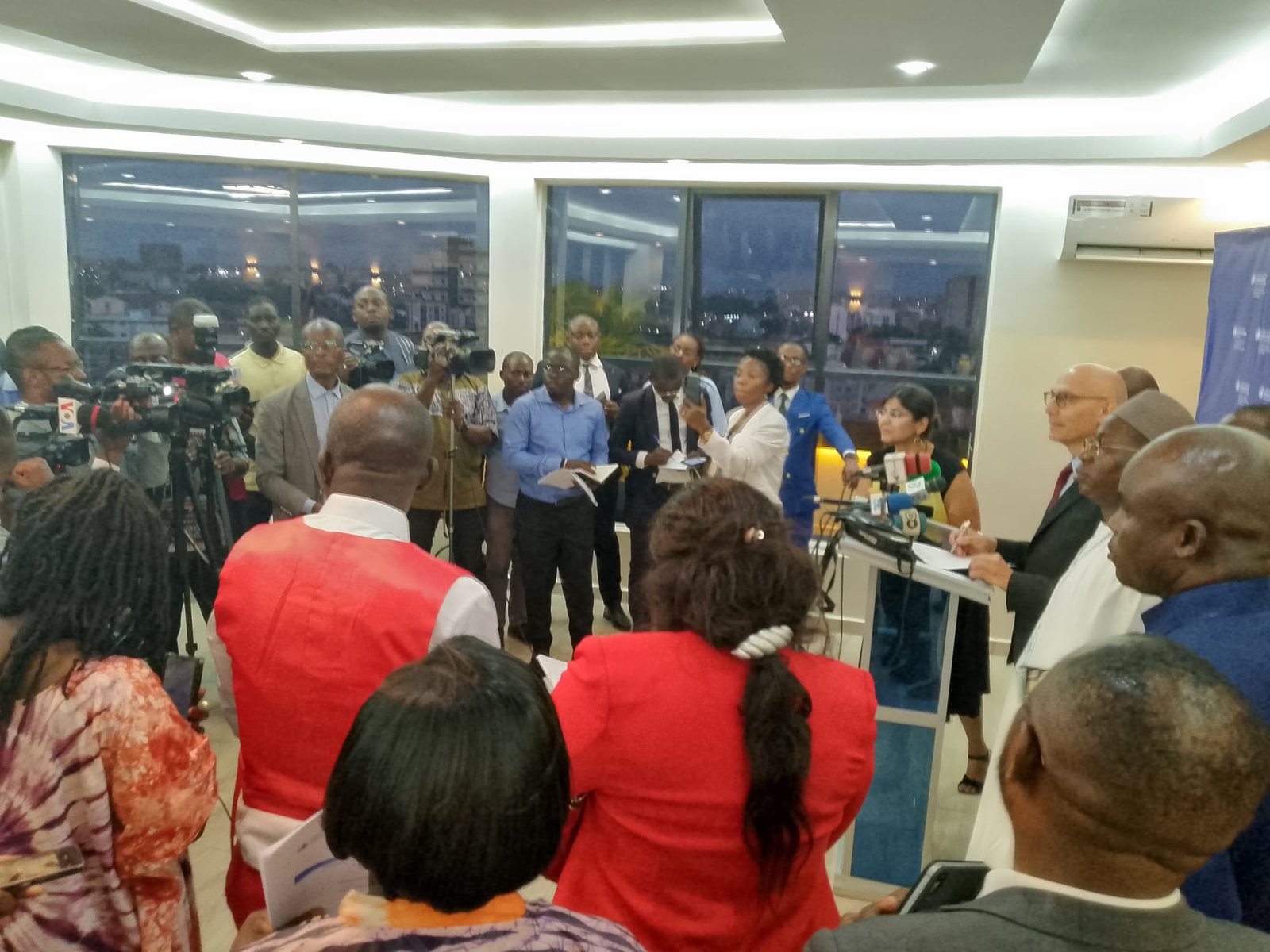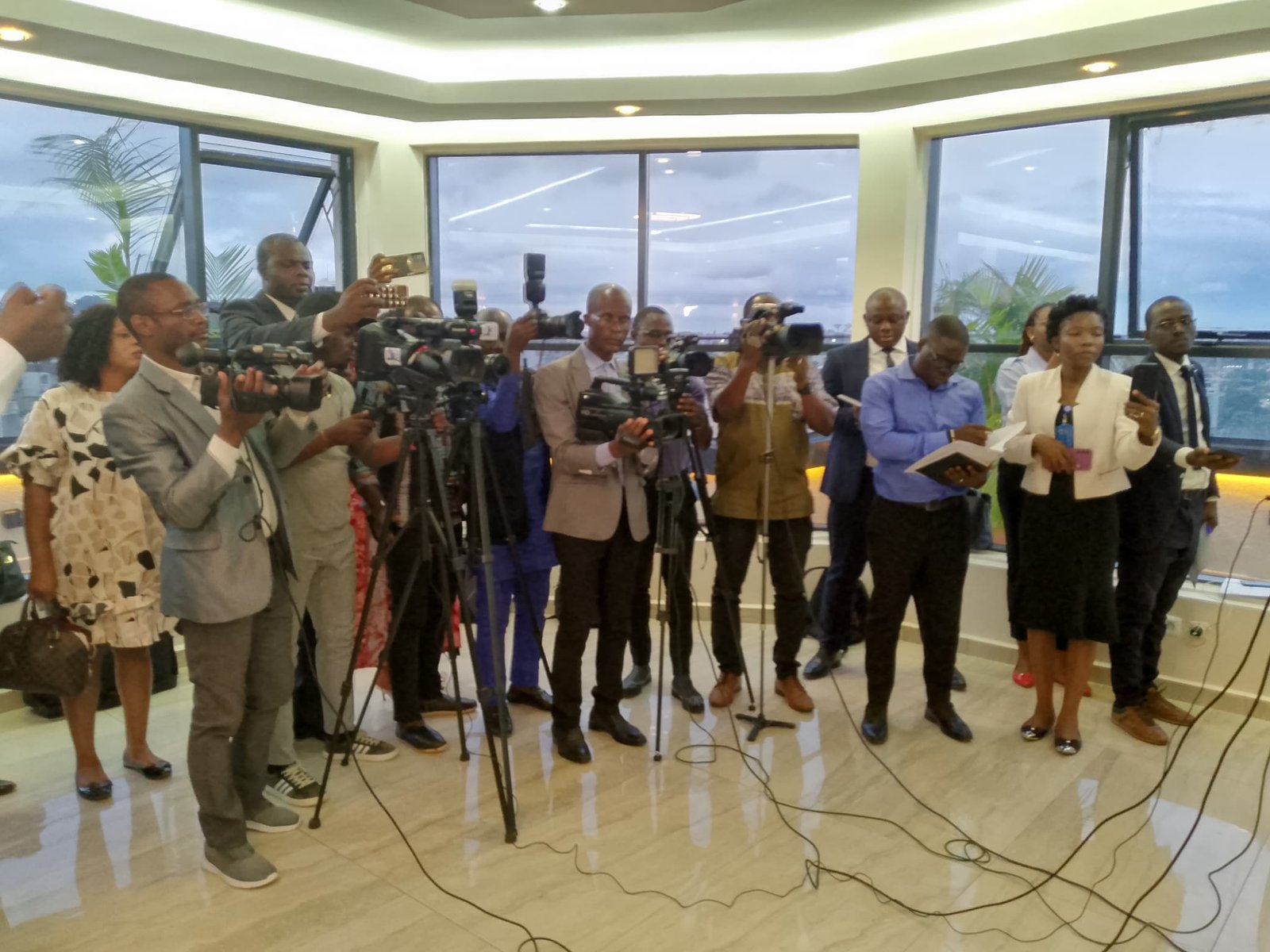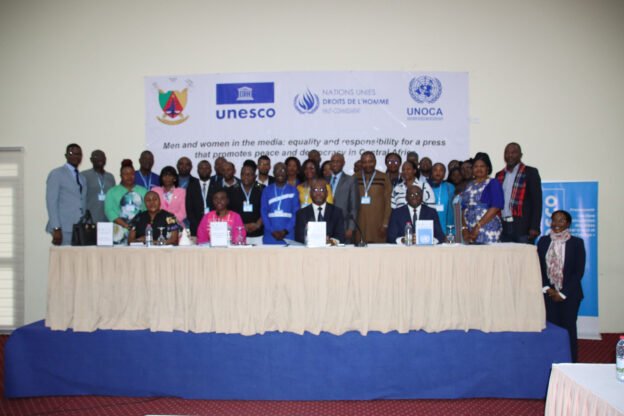At the end of his official visit to Cameroon, the United Nations High Commissioner for Human Rights, Volker Türk granted a press conference on Wednesday, 7th of August 2024.

Volker Türk, United Nations Human Rights Chief, declared on August 7, 2024, after concluding a three-day working visit in Cameroon.
The Patron of Human Rights in the United Nations had a tight working agenda from the 5th to the 7th of August 2024, audiences with top government officials and a conference at the International Relations Institute of Cameroon marked that.
He praised the warm welcome offered to him by officials who openly shared with him a wide range of issues linked to human rights.
As a country where Mr. Volker Türk has a strong connection and engaged personally on the field for several years, he felt at ease to come back for an official visit as he described.
In his declaration, the UN High Commissioner for Human Rights, Volker Türk said:
“Cameroon today faces multiple complex human rights challenges – but also opportunities, particularly given its extremely youthful population, with more than 40 percent of Cameroonians under the age of 14, as well as a vibrant civil society. Globally, young people are influencing action on issues of national and international importance, prompting social change – climate change, equality, accountability, and more. The electoral process in Cameroon, leading up to the 2025 and 2026 elections, is a key opportunity to reinforce political inclusiveness and facilitate the participation of all segments of society, including young people, women, populations in conflict-affected areas, displaced people, and people with disabilities, to ensure the free expression of political opinions. To make sure the space is protected for robust discussion and debate on how to tackle the challenges together, as a country.”

He went further to outline some difficult challenges that need to be addressed by government officials, such as the three simultaneous security crises that have been plaguing different parts of Cameroon. Volker Turk mentioned the Far-North region that is persistently under the threats of Boko Haram terrorists; and the North-West and South-West regions that are at the heart of a crisis that sparked since 2016.
He pointed out: “The situation in the North-West and South-West regions, with ongoing serious human rights abuses and violations against the civilian population; the impact of the attacks by Boko Haram-affiliated and splinter groups in the Far North region; and the spillover effects of the crisis in the Central African Republic in the East. Cameroon is also located in a region strongly affected by the climate crisis, particularly in the Far North region. As we see in many parts of the world today, drought, erratic rainfall, and increasing desertification in the Lake Chad Basin have triggered tensions and violence, sometimes between herder and farmer communities. Cameroon is an important refugee-hosting country. As of June this year, around 1 million people were also internally displaced in Cameroon, and a total of 3.4 million needed humanitarian assistance, out of a population of 27 million.”
UN Human Rights Chief expressed his worry as the current crisis in the affected regions of Cameroon not only leads to unlawful killings, human rights abuse, and violations but also affects the education of over 700.000 children who are denied the right to go to school.
“In the North-West and South-West regions, what began as peaceful protests in 2016 has turned into a major crisis for the civilian population, with clashes between separatist groups, other armed groups, and security forces, including the military, leaving thousands killed, hundreds of thousands displaced, and the denial of the right to education to more than 700,000 children. Reports continue to emerge of human rights violations and abuses, including unlawful killings, ill-treatment and torture, kidnappings for ransom, and restrictions on freedom of movement. The imposition of “lockdown Mondays” by separatist groups, preventing children from going to school, and people from accessing their livelihoods, at the risk of being shot – this is unacceptable and should be roundly condemned. No stone should be left unturned in efforts to silence the guns and bring this untenable crisis to an end – through dialogue with those who have grievances and demands, through accountability for the perpetrators of human rights violations and abuses, and reconciliation measures, including an evaluation of existing Disarmament, Demobilization and Reintegration (DDR) processes for certain members of armed groups.” He added.

The occasion was also well seized to unveil to media practitioners some recommendations of his fruitful working sessions with government officials.
Volker Turk called on the government to facilitate humanitarian access to areas affected by conflict and urged the government to revise the 2014 anti-terrorism law in this regard.
Moreover, he proposed to authorities an assessment mission by UN Human Rights teams in order to diagnose once again the situation on the ground.
“My Office is ready to provide advice and assistance. I have asked the authorities to facilitate an assessment mission by a team of UN human rights officers to the North-West and South-West regions to assess progress following the recommendations of our report in 2019 and conduct further evaluation of the situation.
In my meetings with civil society, we discussed serious concerns over restrictions on the freedom of expression and association the right to peaceful assembly, and the need to ensure better protection of human rights defenders. 3 The period leading up to elections is always a particularly sensitive one. I called on political parties, across the spectrum, to commit publicly to the human rights cause, notably to ensure the rights to freedom of expression and peaceful assembly will be defended in the context of the 2025 and 2026 elections. Civil society organizations and journalists need to be able to carry out essential monitoring and reporting in the pre-electoral context, alongside the “Commission des Droits de l’Homme du Cameroun (CDHC)”, including countering hate speech and disinformation – without intimidation or fear of reprisal. Action on emblematic legal proceedings would help send clear messages against impunity and serve to prevent further violations.”

In a process to continue to mainstream female leadership especially as Cameroon prepares for crucial legislative and municipal elections, and to tackle all forms of gender-based violence and harmful practices affecting women and girls, the United Nations Human Rights Chief said: “Senior Government officials acknowledged that Cameroon needs to prioritize increasing the number of women in leadership positions across the board, including in parliament, regional councils and municipal councils. I also called on Cameroon to accelerate the adoption of comprehensive legislation on violence against women and to revise the penal code to ensure access to justice and other essential services for victims. Harmful practices, including forced or early marriage, sexual harassment, rape, and sexual mutilation must be vigorously tackled. Inequalities and unlawful discrimination based on race, ethnicity, religion, linguistic origin, sexual orientation, and other grounds needs to be eliminated. Cameroon has the potential to be a leader in sustainable development, including by starting to adopt a National Action Plan on Business and Human Rights and ensuring sufficient resources in the national budget for climate change adaptation and mitigation measures.”
To conclude his declaration, Volker Turk outlined the key role played by Cameroon in the UN General Assembly at the regional and international levels.
Elise Kenimbeni




